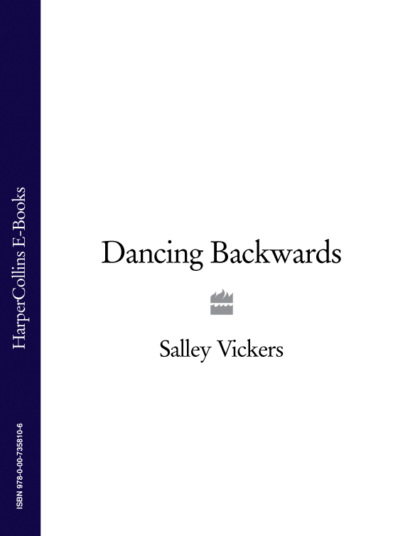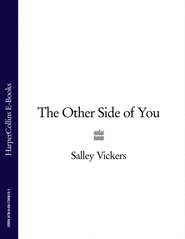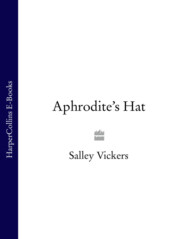По всем вопросам обращайтесь на: info@litportal.ru
(©) 2003-2024.
✖
Dancing Backwards
Автор
Год написания книги
2018
Настройки чтения
Размер шрифта
Высота строк
Поля
‘Not tonight, thanks.’
‘Got a headache, have you?’
‘No, I’m busy.’
‘Oh, what you got to be busy about?’ Sandy moved across to get a better look into the room.
‘This and that.’
‘Oh, right. So see you then?’
‘See you, Sandy.’
THIRD DAY
Footloose: the bottom portion of the sail is called ‘the foot’. If it is not secured, it is known as ‘footloose’ and dances in the wind.
7 (#ulink_cd62e2e7-fe84-57d3-b490-a2a6315d9a0f)
When Vi woke next morning bands of mist had settled around the ship. Standing in her white nightdress on the balcony, she could see nothing before her but an all-obscuring white.
She had dreamed about her mother. She tried to let her mind open up again. But it was almost always hopeless if you didn’t catch hold of a dream at once, before it evaporated. Brushing her teeth, she wondered, as she had wondered before, if dreams too closely grasped were dangerous. Maybe, like those people in legend who wandered into fairyland and never properly returned, dreams took you too far from what was called ‘the real world’ to continue to survive in it.
The guardians of oblivion relented a little and allowed a fragment of the dream to escape. Her mother was explaining something. She tried again to let her mind go free. Something about a family her mother had had, another set of children before she had Vi. And this other family, who appeared out of the blue, wanted to meet Vi. But try as she might she couldn’t recover any more.
Around the time of her mother’s death, Vi had often dreamed of her. Then the dreams petered out and she hardly dreamed about her mother at all until the marriage to Ted. How unfathomable it was, the trade between the daylight and the night mind. Was there something about Ted that allowed her mother to return from wherever she had settled? Would she have liked Ted? Or was it one of those coincidences which make up more of life than we want to admit because it is so tempting to endow them with a profounder meaning?
And of course it was not her mother at all whom she dreamed of, anyway, but a figure of her own creating.
Thoughts of her dead parent led inevitably to the living one: her father in his dreadful ‘Home’, which wasn’t a home at all. They had never really got on. For all her best intentions, she had never been able to break through that impenetrable-seeming barrier which he had thrown up against his wife’s death. They had never found a way to know each other better. Perhaps after her mother died neither of them wanted to be close.
Deciding she had had enough of queues, and with no desire for conversation, she rang room service and ordered toast and coffee. She was sitting on the balcony in the early morning sun when there was a knock at the cabin door and Renato came through and out on to the balcony carrying a breakfast tray.
‘Mrs Hetherington, you take some repose on your balcony. It is good.’
‘Thank you, Renato.’
‘I pour your coffee?’
‘Thank you, Renato. I can manage.’
Renato’s expression took on its sulky cast. Vi wondered again quite why it was so difficult to prevent people taking trouble for you when the only trouble you wanted from them was to be left uninterrupted in peace.
‘I bring you hot milk as well as cold, Mrs Hetherington. And fresh orange juice.’ The tone of reproach was applied judiciously.
‘Thank you, Renato, that’s very kind of you.’
‘You like orange?’
‘Yes, thank you.’
‘I bring you some tomorrow.’
‘Thank you,’ she said again. And more to please him than from any formed desire, ‘Or maybe grapefruit?’
Renato left the room, his back and shoulders registering disappointment that for the time being there were no opportunities for further gallantry.
This was something she could never explain to Ted. Ted had thrived on attentive service and she could never convince him that it was not principle, or perverseness, that made her shrink from it. Ted, who liked what he called his ‘creature comforts’, was glad to spend his money on hers. And all she wanted from him, and from his money, was freedom to be left to her thoughts. It had hurt him. She had hurt him. And she couldn’t even justify this by saying she was unaware of the fact that she was hurting him. She had been aware of it.
She heard Edwin saying, ‘Opposites may attract but they rarely bond.’ But Ted wasn’t even an opposite. He was other. Not of her kind. But he was kind. And she had puzzled and bewildered him. And now he was dead. And she was alive. And crossing the Atlantic to see Edwin.
Vi had never felt the desire to keep a journal but she had, for a time, kept notebooks where she wrote down observations, quotations, jottings of odd information and kept letters and cards. Drinking coffee now, she opened the oldest of these notebooks, a school exercise book with stiff green covers.
Meeting a past self was bound to be a jolt. Some of the entries were in ink, in a handwriting that she barely recognised. On one of the first pages there was a quotation: They say miracles are past…and then a blurred smudge of what looked like coffee. It was Shakespeare but, for the life of her, she couldn’t recall where it came from. A few pages on she encountered Edwin.
Vi had gone to Cambridge in the days when the entrance candidates sat a special examination. She attended a comprehensive school in Bromley, to which she and her father had moved after her mother’s death. The school had an indifferent record in sending students to university but Vi had been lucky in her English teacher, Miss Arnold, who, just down from university herself, was still ambitious for her pupils. It was Miss Arnold who had been responsible for Vi sitting the Cambridge entrance exam.
For all her teacher’s confidence, Vi was astonished when she was awarded a place at Newnham, then one of only three colleges where women could study for a Cambridge degree. It was Vi’s private conviction that her papers had been muddled with someone else’s. This suspicion was confirmed when, at their first meeting, Mrs Viney, the Director of Studies, who was Anglo Irish and claimed a distant connection to Goldsmith, asked Vi a question about Tristram Shandy, a book greatly disliked by Miss Arnold and which, as a result, Vi had never read.
When Vi looked scared, Mrs Viney said, ‘You wrote so well on the Shandean influence on European thought in your entrance exam, Victoria.’
Vi’s spirit never quite recovered from this, even when she learned that Mrs Viney was generally disappointed in her current students and frequently confused them with past students, with whom she had been just as disappointed once but who shone in memory with retrospective glory. The discouragement with Mrs Viney was only one of several. Cambridge is notoriously cold since wind blows more or less unimpeded across from the bleak Ural Mountains. The poorer women’s colleges were stingy with their heating and students were obliged to post shillings into their gas meters to light their hopelessly inadequate gas fires. Vi’s grant covered only part of her fees and living expenses and the money was not made up by her father. Rather than ask for what she suspected would not be forthcoming, Vi scrimped and did without extra food and heat in her room and consequently was always catching cold.
But the physical chill was not the worst of it. She missed her school friends, who, if they had gone to university, had gone to jollier-sounding places like Sussex or Newcastle. Her best friend, Annie Packer, had not gone to university at all. To Vi’s admiration, and some envy, Annie had been taken on as a trainee buyer at Marshall and Snelgrove. The job suited Annie who had aspirations to become a model. She was also unusually informed about Marshall and Snelgrove’s stock since she had been in the way of supplementing her school wardrobe by regular shoplifting from their dress department.
As a new undergraduate Vi did what she believed was expected of her: she bought a bike at the police auction, though she never got round to collecting it from the bike shop to which she took it for repairs; she joined societies and made a few, not very congenial, friends. In the first term, she went out with a boy from Selwyn called Derek, who was a member of the English History Society. They hadn’t much to say to each other and Vi found Derek’s sexual advances, at a late night showing of La Dolce Vita, annoying rather than enticing. She auditioned for a production of Topol, where she was cast in a minor role, which was subsequently cut when the show ran overtime. After that, she joined a dull Sunday choir and drank dutifully with the others at the pub. But she found the whole experience of being away from home confusing and missed Annie, who was sharing a flat in Earls Court with three high-spirited Australians from Adelaide.
There was a tap at the door and a beaming Renato came through to the balcony. ‘Mrs Hetheringon, I bring…’ He proudly presented on a salver half a grapefruit, cut into efficient segments.
‘Thank you, Renato.’
‘You finish the rest of your breakfast? I take away this tray?’
‘Please.’
Deftly shouldering the tray with one hand, Renato produced from his pocket a token.
‘Free offer to use the spa. It is meant only for Decks Thirteen and Fourteen but my friend there he give me some and so I say, This for Mrs Hetherington.’
‘Thank you, Renato. That is very kind.’
‘You like the spa, Mrs Hetherington. Very good for ladies.’
‘I am sure I shall like it.’
‘Very peaceful. Let me know when to do your room, Mrs Hetherington.’
‘Thank you, Renato, I shall.’











